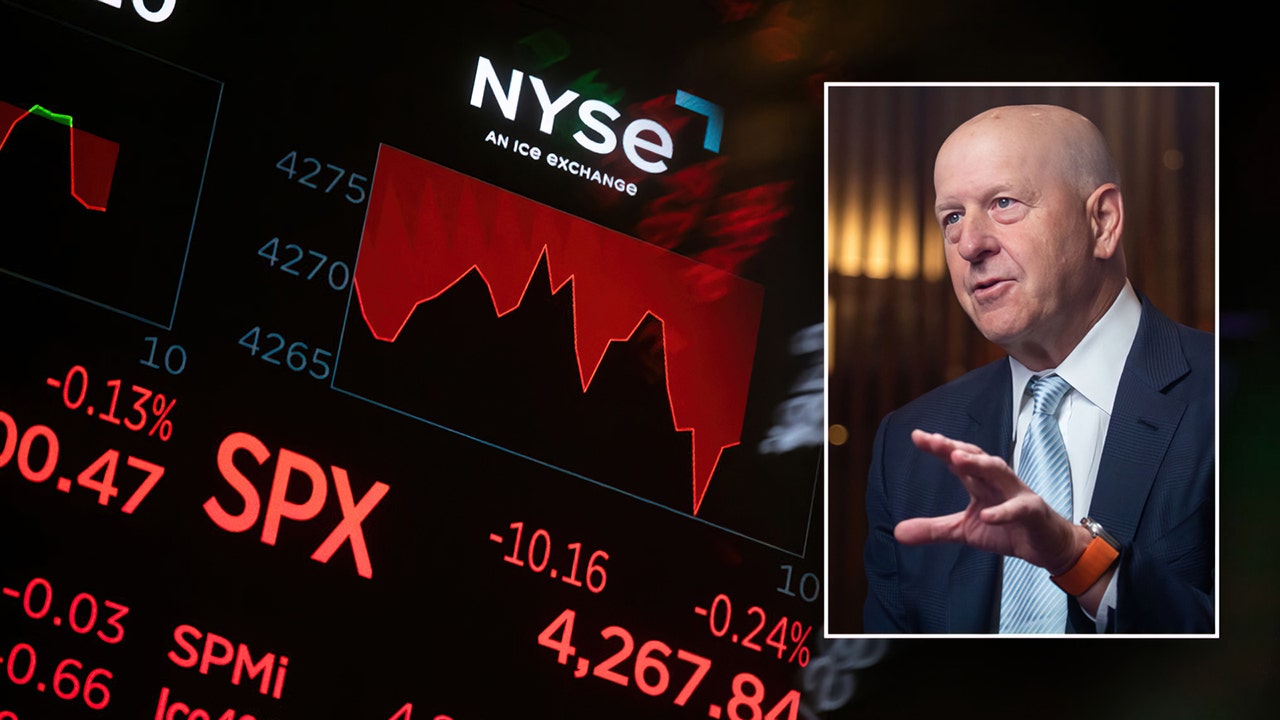Finance
Goldman Sachs CEO warns the Fed’s rate hike campaign will serve ‘shock to the system’

The CEO of one of Wall Street’s biggest market makers and movers cautioned that the U.S. economy will be more “fragile” going into 2024 and that the Federal Reserve may not be done with their rate hike campaign.
“I think we’re going to see a little bit of a slowdown in economic activity. I think the Fed needs more data and more information. I think they’ll watch it closely. I think there is a risk that rates could go higher,” Goldman Sachs CEO David Solomon said on “Cavuto: Coast to Coast” Friday.
“I do think inflation is going to be sticky. It’s particularly present at the moment around labor. And so that has to have an effect that plays through,” the CEO continued. “But I think, at the moment, the Fed’s in kind of pause, wait-and-see mode. I think they’ll be very data-dependent. And so if we do see a pickup in inflation, I think you’ll see the Fed act accordingly.”
Though the Fed decided to pause any rate hikes at its meeting last month, the impact of the bumps are just now being felt in the markets. Mortgage rates continued their upward trajectory this week, inching closer to 8% yet again as purchase demand sputters.
BANK OF AMERICA C.E.O. SAYS TIGHT LENDING ENVIRONMENT WILL LEAD TO A SLOWDOWN IN THE U.S. ECONOMY
With mortgage rates at their highest level in more than two decades, more would-be buyers are balking at the cost of a house payment. At the same time, more would-be sellers are opting to keep their homes rather than move and take on an interest rate that may be twice their current rate.
Economists now project 2023 will mark the slowest year for home sales since 2008, when the housing bubble burst.
Solomon argued Americans won’t see the 1970s or 80s interest rates that once hovered around 12 and 13%.
“I don’t think we’re going back to where we were in the 70s… despite this tightening, there are a lot of things that have changed in the context of the breadth and the depth and the complexity of the U.S. economy,” Solomon said.
“And I feel we’ll be able to manage through this on a reasonable basis,” he added. “But I understand why people feel that the change, and this change so quickly, after a period of very accommodative monetary policy is a little bit of a shock to the system.”
Overall, however, Solomon expressed confidence in the resiliency of U.S. small businesses and the complexity of its economy.
“I do think there’s a risk that the economy is a little bit more fragile as we head into 2024. We’re watching that closely. Obviously, uncertainty around the world and geopolitical uncertainty can contribute to a sense of confidence or a lack of confidence that can slow economic activity,” Solomon noted. “But for now, the U.S. economy has been relatively resilient. But I think we have to watch it very cautiously given everything that’s going on in the world.”
READ MORE FROM FOX BUSINESS
FOX Business’ Breck Dumas contributed to this report.
Read the full article here


















